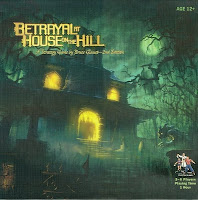BOOK: That young man's very brave.
MAL (whatever): Yeah, he's my hero...
BOOK: Give up everything to free his sister from that... place... go from being a doctor on the central planets to hiding on the fringes of the system... There's not many would do that.
MAL: Suppose not.
-- from Firefly, Episode #2: "The Train Job"
This kind of dialog is known as As You Know, Bob. Where two characters discuss something both are familiar with, but in a way that anyone listening (i.e. the reader) will understand what's going on.
TV shows do it all the time. They have to so they don't lose channel surfers, viewers coming in after the commercial break, or new viewers who didn't see the previous episodes. (Or, in the case above, because Fox aired episode #2 before episode #1 so NOBODY knew what was going on).
Books do it too, but it's less forgivable.
"There it is, Piter--the biggest mantrap in all history. And the Duke's headed into its jaws. Is it not a magnificent thing that I, the Baron Vladimir Harkonnen, do?"
-- from Dune
AYKB dialog is a subtler, but no less lazy, form of infodump. The novice author knows he's not supposed to bore the reader with expository backstory, so they try to hide it with "action," which in this case means two people talking.
Although it's true that dialog is more interesting than exposition, this kind of dialog is about the same. Most readers can tell that something's wrong, even if they don't know what.
The problem is real people don't talk like that. They don't say, "Remember your birthday party two weeks ago, where you got so drunk you danced half-naked on the pool table?" They'd just say, "Remember your birthday party?" and then "Yeah, that was awesome."
"All this 'You-Know-Who' nonsense -- for eleven years I have been trying to persuade people to call him by his proper name: Voldemort."
"But you're different. Everyone knows you're the only one You-Know- oh, all right, Voldemort, was frightened of."
-- from Harry Potter and the Sorceror's Stone
So how do you fix it? The same way you fix any infodump:
with carefully-placed, telling details. Here's a 4-step program for you.
- Write the crappy As You Know, Bob dialog. All of it. If you don't write something, you'll never get anywhere.
- Cut everything that is extraneous information, that neither character would bother saying because they both know that they both know. (Paste it somewhere else, though, so you know it).
- Read the dialog again. If it would still make sense to a new reader, leave it.
- If there's information a new reader must have to understand the story at that point, find places to insert it. But keep the info-bits small and as realistic as possible.
You might have to invent reasons for the explanation.
Introduce a character who must have things explained to them. Or
drop the characters in a situation where the information is necessary to have, so the reader doesn't mind a little expository infodump (though not in dialog, unless it can be done realistically).
Sometimes the solution is simple:
move it out of dialogue. So instead of:
"God, you're such an idiot. You're acting like I never went to that assassin school last summer."
Try:
"God, you're such an idiot." He acted like I'd never been to assassin school.
More often, the solution is even simpler, but we don't want to believe it:
just remove the information. You'd be surprised how far a reader can go without all the backstory. And if they have a question, or get confused, well that's what beta readers are for.


























